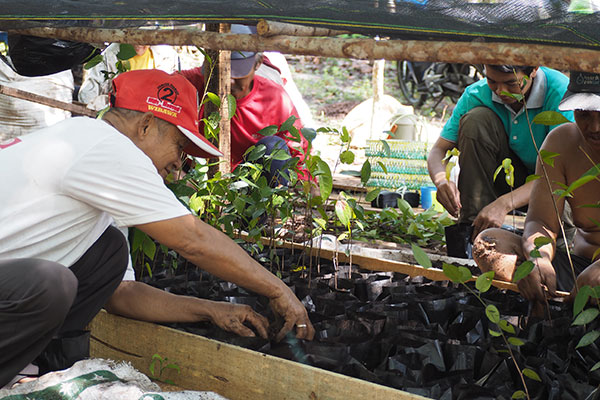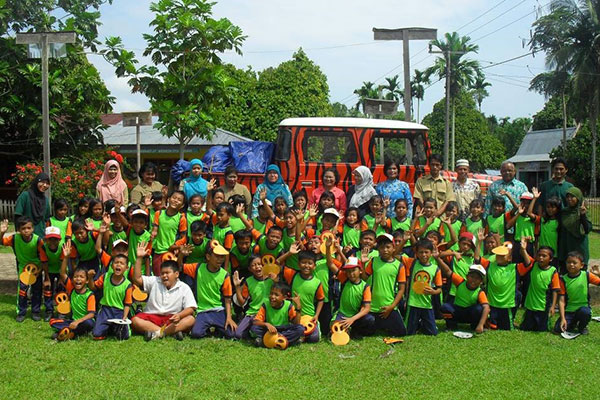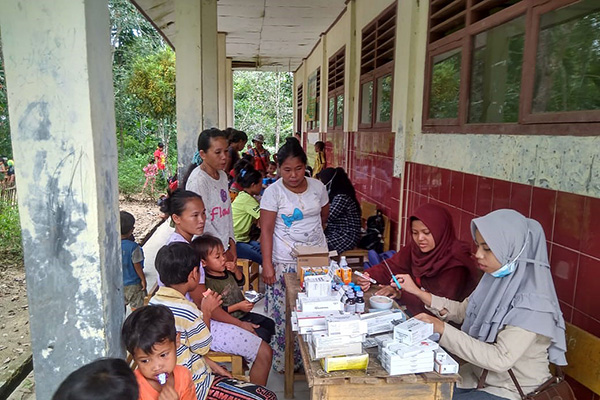It is imperative that people living in and around forest ecosystems are empowered and educated about the importance of protecting their local environment to provide clean air, water and earth to sustain forests, rivers and oceans. Protecting and restoring all these elements is vital for community development and stability.
The International Elephant Project supports numerous mobile education programs that deliver practical education and training to local people living in or near forest ecosystems about sustainable living practices as well as the protected status of elephants and the need to conserve and celebrate this Critically Endangered species.
As their natural habitat is destroyed, elephant food sources and migration routes are compromised, and this often results in human-elephant conflict. Elephants are often considered agricultural ‘pests’ as they will feed on and destroy crops and plantations, placing them in conflict with farmers. Sometimes village huts are destroyed, and humans may be killed. This can lead to anger from the villagers and retaliation killings, often in the form of poisonings.
Education teams carry out education, awareness, community development and capacity building of local communities, targeting the main motives and drivers for human-elephant-conflict, with the aim to reduce these incidents. Mobile education teams often visit local schools and farmers in particular, to discuss the importance of protecting elephant habitat. Our Elephant Conservation and Monitoring Units also train farmers on how to safely deter elephants away from their crops.



Empowering local people with the knowledge and resources to live more sustainably is also a key objective of the education teams. Training and workshops regarding low environmental impact agro-forestry and mixed tree cultures are an important step in the long-term protection of forests whilst also providing a sustainable living for local communities.
We also provide funds to empower communities to politically and legally engage on enforced projects that will negatively affect their way of life by compromising and destroying forest ecosystems.
The International Elephant Project funds the education and empowerment of local people through partnerships with the following organisations:
You can change your country here
Got it